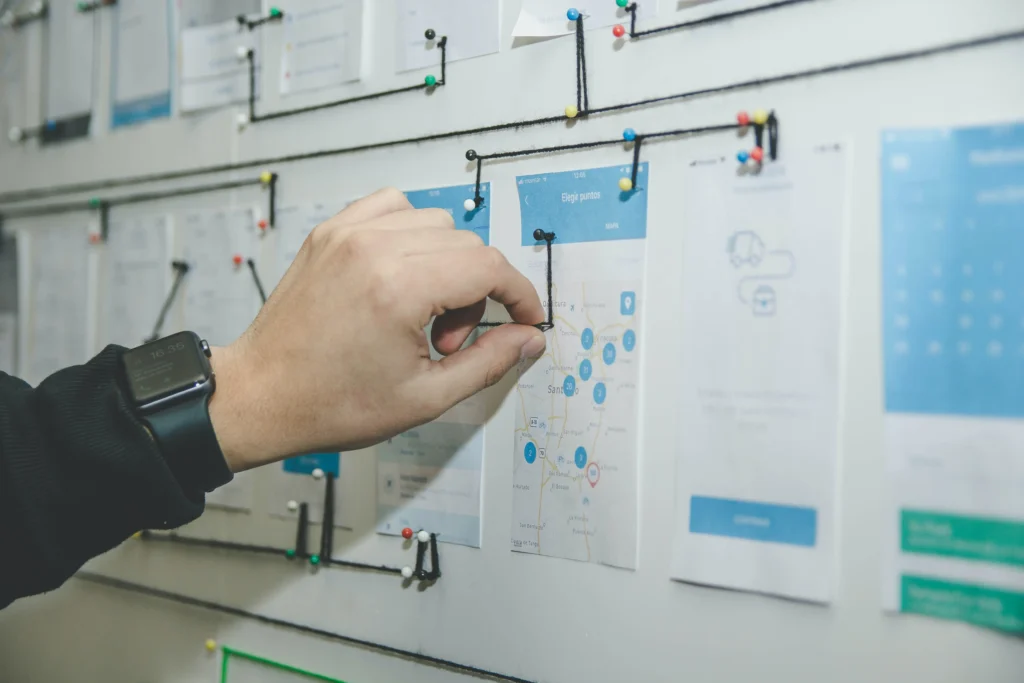Project Manager vs Developer: Understanding the Key Differences

If you’re considering a career in tech, you’ve likely come across the roles of project manager and developer.
While both positions are integral to the success of a project, they have distinct responsibilities and skill sets. Understanding the differences between the two can help you choose the career path that best aligns with your interests and strengths.
As the name suggests, a project manager is responsible for overseeing the entire project from start to finish. This includes setting project goals, creating timelines, managing budgets, and ensuring that all team members are meeting their deadlines and working together effectively.
Project managers are also responsible for communicating with stakeholders and clients to ensure that their needs are being met and that the project is on track to meet its objectives.
On the other hand, developers are responsible for writing and testing code to create software applications, websites, and other digital products. They work closely with project managers to understand the project’s goals and requirements and to ensure that the code they write meets those specifications.
Developers are also responsible for troubleshooting and fixing any issues that arise during the development process to ensure that the final product is functional and meets the client’s needs.
Let’s dive deeper into their roles and responsibilities.
Roles and Responsibilities
Project Manager

As a project manager, you will be responsible for overseeing the entire project and ensuring that it is completed on time and within budget.
You will work closely with stakeholders, clients, and team members to develop project plans, set timelines, and allocate resources. Your role will involve:
- Developing project plans and budgets
- Identifying project risks and developing strategies to mitigate them
- Communicating with stakeholders and team members
- Setting project timelines and milestones
- Tracking project progress and making adjustments as necessary
- Managing project budgets and ensuring that costs are kept under control
- Ensuring that all project deliverables meet quality standards
- Managing project documentation and ensuring that it is up-to-date
Developer
As a developer, your role will be to write code and develop software applications that meet the project requirements.
You will work closely with other developers, project managers, and stakeholders to ensure that the software meets the client’s needs. Your role will involve:
- Writing code that meets project requirements
- Testing code to ensure that it is bug-free
- Collaborating with other developers to ensure that code is consistent and meets coding standards
- Participating in code reviews to ensure that code is of high quality
- Troubleshooting and debugging code as necessary
- Keeping up-to-date with new technologies and programming languages
- Providing input into project planning and timelines
It is important to note that while project managers and developers have different roles and responsibilities, they must work closely together to ensure that projects are completed successfully. Communication is key to ensuring that everyone is on the same page and that the project is progressing as planned.
Skills Comparison
Project Manager Skills
As a project manager, you need to have a variety of skills to be successful. Here are some of the most important ones:
- Leadership: You must be able to lead a team and inspire them to work together towards a common goal.
- Communication: You must be able to communicate effectively with your team, stakeholders, and clients.
- Organization: You must be able to keep track of all the moving parts of a project and ensure that everything stays on schedule.
- Risk Management: You must be able to identify potential risks to the project and develop strategies to mitigate them.
- Budgeting: You must be able to create and manage a budget for the project, including tracking expenses and making adjustments as needed.
- Problem Solving: You must be able to identify problems and develop solutions quickly and efficiently.
- Negotiation: You must be able to negotiate with clients, stakeholders, and team members to reach agreements that are beneficial for everyone involved.
Developer Skills
As a developer, you need to have a different set of skills to be successful. Here are some of the most important ones:
- Programming Languages: You must be proficient in one or more programming languages depending on the project requirements.
- Problem Solving: You must be able to identify and solve complex problems related to software development.
- Attention to Detail: You must be able to pay close attention to detail to ensure that your code is error-free.
- Continuous Learning: You must be willing to continuously learn new technologies and programming languages to stay up-to-date with the latest trends in software development.
- Collaboration: You must be able to work effectively in a team environment and collaborate with other developers, designers, and project managers.
- Testing and Debugging: You must be able to test and debug your code to ensure that it meets the project requirements and is error-free.
- Creativity: You must be able to think creatively to develop innovative solutions to complex problems.
Overall, both project managers and developers require a unique set of skills to be successful. While there are some overlapping skills, there are also skills that are specific to each role. By understanding the skills required for each role, you can determine which career path is right for you.
Career Paths
If you are considering a career in the tech industry, you may be wondering which path to take – project manager or developer.
Both roles have their unique set of skills, responsibilities, and career paths. In this section, we will take a closer look at the career paths of project managers and developers.
Project Manager Career Path
As a project manager, you will be responsible for planning, executing, and closing projects. You will work with a team of developers, designers, and other stakeholders to ensure that the project is completed on time, within budget, and meets the client’s requirements.
To become a project manager, you typically need a bachelor’s degree in a related field such as computer science, business, or engineering. You may also need to obtain a project management certification such as PMP (Project Management Professional) or CAPM (Certified Associate in Project Management).
As a project manager, you can expect to start in an entry-level position such as project coordinator or project assistant. As you gain experience, you can move up to roles such as project manager, senior project manager, program manager, and portfolio manager.
According to Glassdoor, the average salary for a project manager in the United States is $90,000 per year. However, your salary may vary depending on your location, experience, and industry.
Developer Career Path
As a developer, you will be responsible for designing, developing, and testing software applications. You will work with a team of developers, project managers, and other stakeholders to ensure that the software meets the client’s requirements and is delivered on time and within budget.
To become a developer, you typically need a bachelor’s degree in computer science or a related field. You may also need to have experience with programming languages such as Java, Python, or C++.
As a developer, you can expect to start in an entry-level position such as junior developer or software engineer. As you gain experience, you can move up to roles such as senior developer, lead developer, and software architect.
According to Glassdoor, the average salary for a software developer in the United States is $80,000 per year. However, your salary may vary depending on your location, experience, and industry.
In summary, both project managers and developers have promising career paths in the tech industry. Project managers are responsible for managing projects and ensuring that they are completed on time and within budget.
Developers are responsible for designing and developing software applications. The career path you choose will depend on your interests, skills, and career goals.
Salary Comparison
When it comes to choosing between a career as a project manager or a developer, one of the most important factors to consider is the salary. In this section, we will compare the average salaries for project managers and developers.
Project Manager Salary
According to the US Bureau of Labor Statistics (BLS), the median salary for project managers in the United States as of 2022 is $95,370 [1]. However, this salary can vary depending on factors such as location, industry, and experience level.
Project managers in the software development industry can expect to earn an average salary of $92,939 in 2023, according to PayScale [4]. The salary range for project managers in this field typically falls between $62k to $137k [4].
Developer Salary
The average salary for a developer is $98k/year, according to ConquerCoding [2]. However, this can vary depending on factors such as location, experience level, and the specific type of development work being done.
Entry-level developers can expect to earn around $68k/year, while more experienced and qualified developers can demand close to $140k/year or higher [2]. Glassdoor reports that most developers earn around $80-100K/year [2].
In conclusion, both project managers and developers can earn a good salary, but the specific amount will depend on various factors. Project managers typically earn a slightly higher salary than developers, but this can vary depending on the industry and location.
Work Environment
The work environment for project managers and developers can vary depending on the industry, company, and project they are working on. However, there are some general differences in the work environment between these two roles.
Project Manager Work Environment
Project managers often work in an office setting with a team of professionals. They are responsible for overseeing the project and ensuring that it is completed on time, within budget, and meets the project goals. They may work with a diverse group of stakeholders, including clients, vendors, and team members.
Project managers typically work regular business hours, although they may need to work longer hours or weekends to meet project deadlines. They may also need to travel to meet with clients or oversee project sites.
Developer Work Environment
Developers may work in an office setting or remotely, depending on the company and project. They typically work in a team environment with other developers, designers, and project managers.
They are responsible for developing and testing software applications, websites, or other digital products.
Developers may work flexible hours, including evenings and weekends, depending on project deadlines. They may also work on multiple projects simultaneously and need to manage their time effectively.
Comparison
Overall, project managers and developers both work in a professional environment, but project managers tend to work more regular business hours in an office setting.
Developers may have more flexibility in their work schedule and may work remotely. Both roles require strong communication and collaboration skills to work effectively with clients, stakeholders, and team members.
Conclusion
In conclusion, both project managers and developers play critical roles in the success of a project. While project managers focus on planning, organizing, and overseeing all aspects of a project, developers are responsible for designing, developing, and implementing the technical components of the project.
It’s important to note that the roles of project managers and developers can vary depending on the organization and project at hand. However, understanding the key differences between these roles can help you make an informed decision about your career path.
Here are some key takeaways to keep in mind:
- Project managers are responsible for managing the overall project, including tracking expenses, managing funding, and supervising personnel.
- Developers are responsible for designing, developing, and implementing the technical components of the project.
- Project managers must have excellent communication, leadership, and organizational skills, while developers must have strong technical skills and attention to detail.
- Both roles require collaboration and teamwork to ensure the project is completed successfully.
Ultimately, whether you choose to pursue a career as a project manager or developer depends on your skills, interests, and career goals. By understanding the differences between these roles, you can make an informed decision about which path is right for you.
Frequently Asked Questions
How does the salary of a project manager compare to that of a developer?
The salary of a project manager is generally higher than that of a developer. According to Indeed in the United States, the average salary for a project manager is $86,000 per year, while the average salary for a developer is $76,000 per year. However, salaries can vary based on factors such as location, experience, and industry.
Can a developer transition to a project manager role? What skills are necessary for this transition?
Yes, a developer can transition to a project manager role. However, it requires a different set of skills than those required for development. A project manager needs to have strong leadership, communication, and organizational skills.
They must be able to manage and motivate a team, communicate with stakeholders, and ensure that projects are completed on time and within budget.
It is also important for a project manager to have a good understanding of project management methodologies and tools.
What are the primary responsibilities of a project manager and a developer?
The primary responsibility of a project manager is to plan, execute, and close projects. They are responsible for ensuring that projects are completed within the given timeline, budget, and scope.
They also need to communicate with stakeholders, manage project risks, and ensure that the project team is working efficiently.
On the other hand, the primary responsibility of a developer is to write, test, and maintain code. They are responsible for ensuring that the code meets the project requirements, is of high quality, and is delivered on time.
Developers also need to collaborate with other members of the team, such as designers and project managers, to ensure that the project is completed successfully.
In summary, project managers and developers have different responsibilities and skill sets. While project managers focus on managing and leading teams, developers focus on coding and ensuring that the code meets the project requirements.
Related Articles
Is backend harder than frontend?



